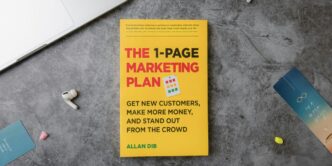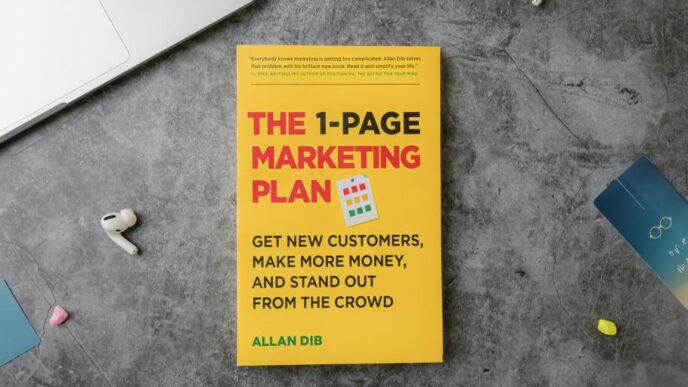In today’s fast-paced digital world, businesses need to stay ahead of the curve, especially when it comes to marketing. With increasingly complex customer behavior, tough competition, and constant changes in technology, many companies are turning to marketing agencies for help. The future of marketing is now heavily tied to advanced technologies like Artificial Intelligence (AI), Big Data, and Machine Learning (ML). These tools are transforming how agencies operate, enabling them to offer smarter, more personalized, and efficient solutions to their clients.
The Role of AI in Modern Marketing
AI has gone from being a sci-fi concept to a core part of modern marketing strategies. For agencies, it’s not just about automating tasks; it’s about sparking creativity, boosting customer engagement, and making smarter, data-driven decisions.
AI tools can process huge amounts of data at speeds no human team can match, allowing agencies to create laser-focused campaigns. AI helps pinpoint the right audience, perfect timing, and best message for maximum impact. A common application of AI is through chatbots and virtual assistants, which provide quick, tailored customer responses on websites and social media.
Agencies are also using AI to automate routine tasks like content scheduling, customer segmentation, and A/B testing. AI-powered platforms even offer real-time performance reports, allowing marketers to make immediate adjustments to their strategies. The result? A more streamlined, cost-effective marketing process, where AI works alongside human creativity.
Big Data: Fueling Smarter Marketing
Big Data is often called the “new oil” because of its immense value. For marketing agencies, it’s the foundation of smarter, more strategic decisions. Big Data refers to the massive amount of information generated online everything from website clicks to social media interactions to e-commerce transactions. The challenge lies in making sense of all that data, and that’s where agencies step in.
By analyzing data from various sources, agencies can uncover insights into customer behavior, preferences, and trends. This helps them build detailed customer profiles, enabling businesses to better understand what drives their customers and where improvements are needed.
Big Data also makes targeting more precise. Agencies can identify patterns in buying behavior and even predict future trends, giving businesses a head start on creating campaigns that resonate with customers. It also allows for real-time adjustments, so marketing strategies can be tweaked on the fly for better outcomes.
Machine Learning: Shaping Predictive Marketing
While AI automates tasks and Big Data provides insights, Machine Learning (ML) takes things to the next level by making marketing strategies more predictive and personalized. ML is a branch of AI that improves over time, meaning systems can learn from past data and predict future outcomes.
For example, ML algorithms can identify which leads are most likely to convert, helping agencies focus on high-value prospects. ML also powers personalized marketing, tailoring emails and ads based on customer behavior to drive engagement and boost sales.
ML is the engine behind the increasingly accurate product recommendations you see when shopping online, showing you items you’re likely to want. Agencies use ML to refine ad placements and improve user experiences, delivering personalized content at just the right moment.
AI, Big Data, and ML: Crafting Personalized Customer Journeys
Today’s customers expect more than generic marketing they want tailored experiences. AI, Big Data, and ML make that level of personalization possible. AI helps analyze customer data and segment audiences, Big Data maps out customer journeys and identifies pain points, and ML fine-tunes the process by predicting what content or offer will most appeal to each individual.
For example, an online shopper might receive personalized product suggestions based on their browsing and purchase history. Automated tools can send follow-up emails or ads based on these preferences, keeping the shopper engaged and more likely to buy.
Challenges and Ethical Concerns
While these technologies offer exciting opportunities, they also come with challenges. Data privacy is a major concern, especially as more personal information is collected. Marketing agencies must navigate regulations like GDPR and CCPA to ensure they handle data responsibly.
There’s also the need to balance technology with the human touch. While AI can do the heavy lifting, creativity and empathy qualities only humans possess are still crucial for building meaningful connections with customers.
The Future: Smarter, More Integrated Marketing Solutions
The future of marketing will continue to be shaped by AI, Big Data, and Machine Learning. As these technologies advance, marketing agencies will be able to create highly personalized, data-driven campaigns that deliver real results.
In a world where consumers demand relevance and brands face growing competition, agencies that embrace these innovations will lead the way in helping businesses succeed. By using smarter solutions, they’ll optimize processes while delivering impactful, meaningful outcomes for their clients.
Conclusion
AI, Big Data, and Machine Learning aren’t just buzzwords they’re shaping the future of marketing. Agencies that adopt these tools will unlock new levels of creativity, efficiency, and customer engagement. The future is bright for those ready to tap into the potential of these cutting-edge technologies, paving the way for smarter, more effective marketing strategies.













